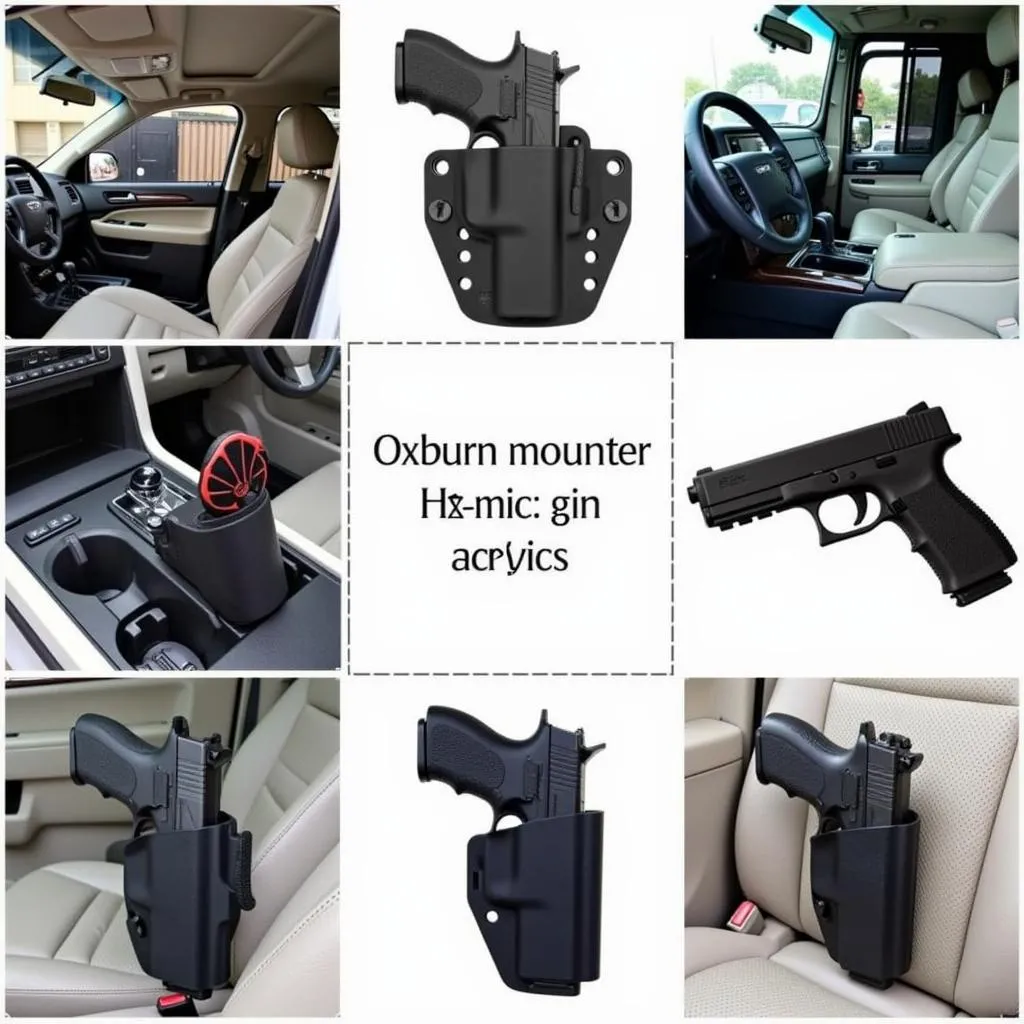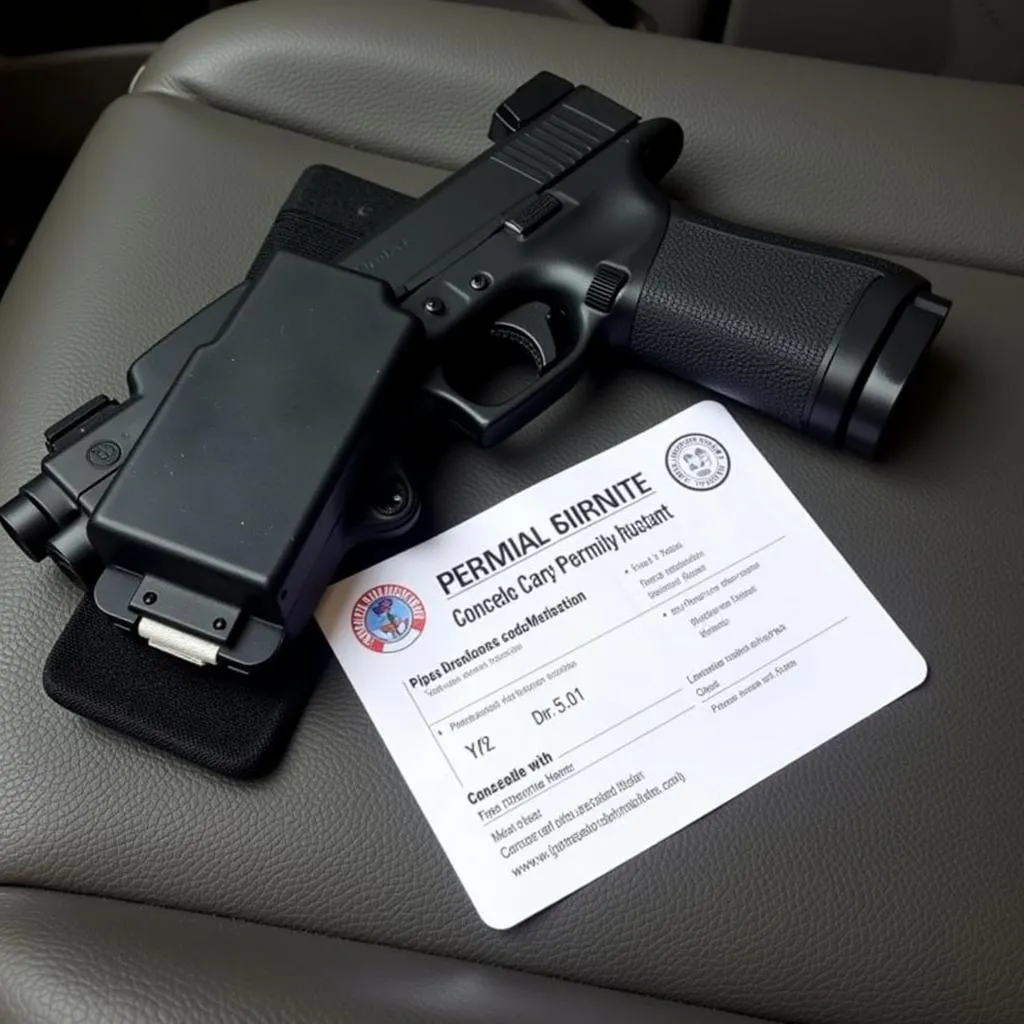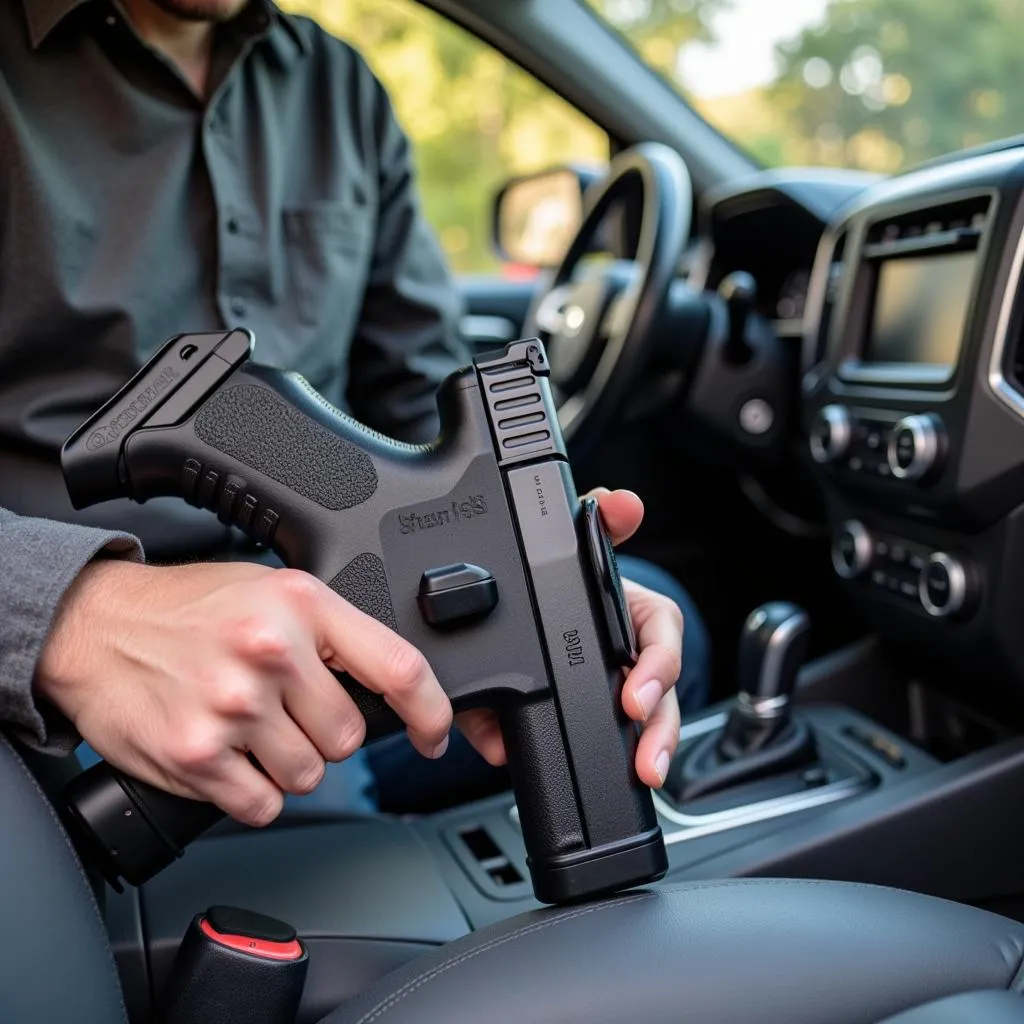Car Mounted Gun Holsters: What You Need to Know Before Buying
Car Mounted Gun Holsters have become increasingly popular in recent years as more and more people choose to exercise their right to carry a firearm. While convenient, there’s more to consider than just quick access. Safety, legality, and practicality all come into play. This article delves into the critical aspects of car mounted gun holsters to help you make an informed decision.
 Types of Car Mounted Gun Holsters
Types of Car Mounted Gun Holsters
Understanding the Need for Secure Storage
A car gun holster is more than just a storage solution; it’s a safety device. It should securely hold your firearm, preventing accidental discharge or unauthorized access, especially if you have children.
Types of Car Gun Holsters: Finding the Right Fit
The market offers diverse options, each with pros and cons:
- Steering Column Holsters: Attaching to the steering column, these offer rapid access but may obstruct driving visibility.
- Under-Dash Holsters: Discreetly mounted under the dashboard, these provide easy access for drivers. However, ensure they don’t interfere with vehicle electronics or airbags.
- Seat-Mounted Holsters: Attached to the driver or passenger seat, these offer versatility but might be challenging to reach quickly.
- Center Console Holsters: Designed for vehicles with center consoles, these provide concealed storage but can limit storage space.
Legality and Responsibility: Navigating the Laws
Before installing any holster, understand your state’s gun laws. Some states have strict regulations on firearm transportation and storage in vehicles. Ignorance is not a defense.
 Concealed Carry Permit and Car Holster
Concealed Carry Permit and Car Holster
Choosing the Right Holster: Factors to Consider
- Retention: The holster should securely hold your firearm, even during sudden stops or impacts. Look for adjustable retention mechanisms.
- Accessibility: In a self-defense situation, every second counts. Ensure you can quickly and easily draw your weapon from the holster.
- Concealment: If you prefer to keep your firearm out of sight, choose a holster that effectively conceals your weapon while still allowing for quick access.
- Material and Durability: Opt for a holster made from durable materials like Kydex or high-quality leather to withstand daily wear and tear.
Installation and Safety: Prioritizing Secure Mounting
Follow the manufacturer’s instructions carefully. Improper installation can lead to accidents. Consider professional installation for added peace of mind.
Beyond the Holster: Additional Safety Measures
- Trigger Discipline: Never put your finger on the trigger unless you’re ready to shoot.
- Muzzle Awareness: Always be mindful of where your firearm is pointed, even when it’s holstered.
- Safe Storage: When you’re not in your vehicle, ensure your firearm is stored securely.
 Responsible Gun Owner Practicing Safety
Responsible Gun Owner Practicing Safety
Conclusion: Making an Informed Decision
Choosing the right car-mounted gun holster requires careful consideration of various factors, from safety and legality to practicality and personal preference. By weighing these factors and adhering to safe gun handling practices, you can ensure you’re equipped to exercise your rights responsibly.
FAQs
Q: Can I use any holster in my car?
A: No. Car holsters are specifically designed for the unique environment of a vehicle and often include features for secure mounting and quick access.
Q: Is it legal to leave my gun in a car holster overnight?
A: Laws vary by state. In many places, it’s illegal to leave a firearm unattended in a vehicle, especially overnight. Research your local laws for clarification.
Q: Do I need a concealed carry permit to have a gun holster in my car?
A: Laws vary significantly. Some states require a permit for any firearm in a vehicle, while others may have exceptions for unloaded firearms in locked containers. Always consult your state’s laws.
